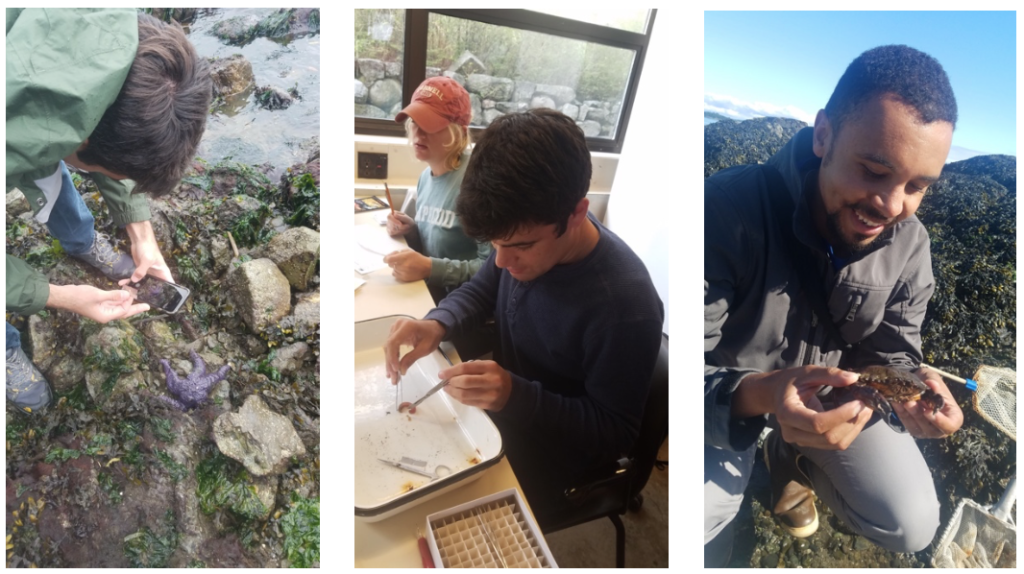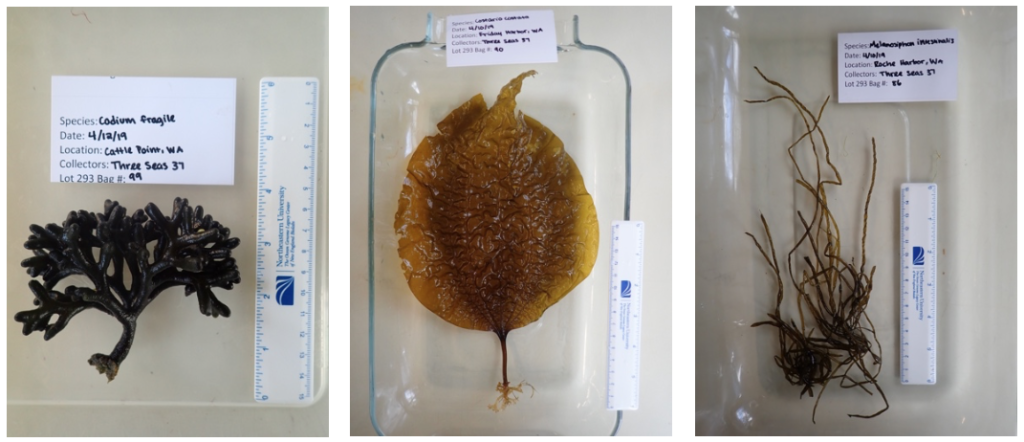Each year Northeastern University’s Three Seas Masters of Science in Marine Biology students travel to the Gulf of Maine, the Salish Sea, and the Caribbean to learn firsthand what it takes to be a marine biologist. But they don’t just come to learn. The students are practicing scientists, helping to expand knowledge of the undersea world.
As part of their educational experience, the Three Seas students hold an annual bioblitz at the world-renowned Friday Harbor Marine Labs in Friday Harbor, Washington. A bioblitz is an all-out, one-day race to collect and identify as many new species as possible and to record their findings for science.
Since 2016, Three Seas students have deposited samples from their bioblitz to the Ocean Genome Legacy (OGL) collection, and as per tradition, they found many species that are new to OGL’s collection.

Three Seas students document (left), sample (center), and collect metadata about (right) specimens in the San Juan Islands at Friday Harbor Labs. Photo credit: Three Seas program.
This year, students sampled more than 60 specimens–25 of which are new species to OGL’s collection, including Cucumaria miniata (orange sea cucumber), Pugettia producta (northern kelp crab), Petrolisthes eriomerus (flattop porcelain crab), and Rostanga pulchra (red sponge nudibranch), as well as every species of seaweed.

Additionally, students document their observations on iNaturalist, an online community for biodiversity science, where their observations can be reviewed and confirmed by other scientists. When the identifications are confirmed by at least three members of the iNaturalist community, the data becomes “research grade” and is indexed by the Global Biodiversity Information Facility (GBIF), a worldwide database relied upon by scientists around the world.
At OGL, supporting the next generation of scientists is a critical part of our education mission. If you’d like to contribute to our collection and teaching effort, consider making a donation today.
